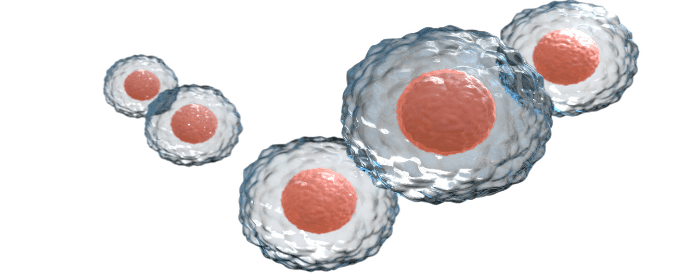
by admin | Apr 30, 2021 | Neurodegenerative Diseases, Stem Cell Research, Stem Cell Therapy
Neurodegenerative disease is a broad term encompassing a number of chronic, progressive diseases that result in degeneration and or death of neurons; these diseases include Parkinson’s disease (PD), Alzheimer’s disease (AD), and amyotrophic lateral sclerosis (ALS) and affect over 50 million Americans each year[1][2].
Since neurons possess a very limited ability to reproduce and/or replace themselves, any damage to these cells tends to be permanent and contributes to incurable and progressive debilitating conditions affecting physical movement and mental function.
While research has determined that these neurodegenerative diseases are primarily a result of the accumulation of misfolded proteins in the brain, the specific cause of these conditions remains unknown; additionally, the complexity of these conditions often lead to delayed diagnosis, most often a result of the lack of effective and recognizable biomarkers. To date, no preventative treatment for these conditions exist and any current treatment serves to only delay the progression of the disease, most often with poor results.
In this article, Yao et al. explore the viability of using mesenchymal stem cells (MSCs) as cell replacement therapy for treating neurodegenerative diseases. According to the authors, MSCs demonstrated the ability to self-renew and differentiate coupled with their relative ease of collection, isolation, and ability to culture and their immunoregulatory properties make them a promising potential treatment option.
Although the specific therapeutic mechanisms of MSCs in the treatment of neurodegenerative diseases are still being studied, they have shown potential in three specific areas: homing, paracrine, and immunoregulation.
Homing involves MSCs ability to spontaneously migrate to damaged regions of the body, making them a viable therapeutic treatment option – especially as a carrier of therapeutic drugs. It is hypothesized that MCS’s ability to home should allow drugs to be attached and to pass through the blood-brain barrier to be delivered to locations in the CNS and brain that are affected by neurodegenerative diseases.
Paracrine, or paracrine signaling, is a cell’s ability to release hormones that communicate with the cells in its vicinity. MSCs ability to secrete growth factors, cytokines, chemokines, and various enzymes are important aspects of cell migration and immune regulation. Animal studies have demonstrated using MSC-derived exosomes to improve symptoms associated with muscle atrophy translates into a promising clinical treatment strategy for neurodegenerative diseases.
MSCs are undifferentiated precursor stem cells with low immunogenicity. Researchers attribute the immunoregulation of MSCs to their various interactions with T cells, B cells, and natural killer cells. Animal studies have shown that placental-derived MSCs have demonstrated beneficial effects, particularly in mice with AD; researchers hypothesize that this effect is a result of these MSCs inhibiting the release of inflammatory cytokines, preventing cognitive impairments, and increasing the survival rate of neurons and nerve regeneration. These findings have demonstrated the potential for immunosuppressants, in combination with MSCS, to be used in future clinical treatments of neurodegenerative diseases.
After reviewing numerous in vitro and in vivo experiments in animal models, the researchers have confirmed the potential therapeutic benefits of MSCs as well as their safety and effectiveness in a wide variety of therapeutic applications. Additionally, studies have also demonstrated no serious or concerning adverse reactions associated with clinical trials (both human and animal) using MSCs from autologous or allogeneic sources.
However, Yao et al. caution that as therapies using MSCs continue to develop, so too should the process used for preparing MSCs as well as that used for determining ideal method and dose for patients; taking these steps will contribute to a deeper understanding of MSCs potential when used as a therapeutic treatment for neurodegenerative diseases.
Source: (2020, July 20). Mesenchymal Stem Cells: A Potential … – Karger Publishers. Retrieved from https://www.karger.com/Article/Fulltext/509268
[1] “What? | JPND.” https://www.neurodegenerationresearch.eu/what/.
[2] “Neurodegenerative Diseases: An Overview of … – NCBI – NIH.” https://www.ncbi.nlm.nih.gov/pmc/articles/PMC1280411/.

by admin | Apr 9, 2021 | Mesenchymal Stem Cells, Spinal Cord Injury, Stem Cell Research, Stem Cell Therapy
Spinal cord injury (SCI) continues to be a significant cause of disability. In fact, it is estimated that annual SCIs account for nearly 18,000 injuries in the United States and between 250,000 and 500,000 injuries worldwide[1]. Additionally, an estimated 294,000 people in the United States are currently living with some form of SCI, with males accounting for nearly 80% of all SCI injuries[2].
Despite a large number of SCIs occurring each year, therapeutic treatment options remain limited and primarily ineffective. Recently, improvements in the understanding of the promising role stem cells play in the healing process have led to significant developments in improving healing and restoring function lost as a result of Spinal Cord Injuries; specifically, the therapeutic treatment of SCIs with mesenchymal stem cells (MSCs) in animal models has demonstrated promising results.
Building off of the success observed in previous studies, Honmou Et al.’s recent study (2021) sought to further explore the safety and feasibility of intravenous infusion of MSCs is SCI patients; the study also explored the patients’ functional status after receiving IV infusion of MSC.
Specifically, Honmou Et al.’s phase 2 study delivered a single infusion of autologous MSCs cultured in auto-serum, to 13 SCI patients. After infusion, the study assessed the feasibility and safety of this procedure over a six-month period by using the American Spinal Injury Association Impairment Scale (ASIA) and International Standards for Neurological Function Classification of Spinal Cord (ISCSCI-92). The researchers also used the Spinal Cord Independence Measure (SCIM-III) as a way to assess the ability of daily living after receiving MSCs infusion.
Although this was a small, early, unblinded, and uncontrolled study, the researchers point out that the intravenous infusion of autologous bone marrow-derived MSCs, expanded in auto-serum, into SCI patients appeared to be safe and feasible with none of the patients exhibiting abnormal cell growth or neurological deterioration. Additionally, and similar to what’s been observed in prior studies conducted on animal models, the findings appear to support the rapid improvement of neurological function within a few days after IV infusion. The researchers also pointed out this study had several limitations, including potential observer bias and potential improvements resulting from surgical interventions.
The researchers point out that although the specific mechanism for this observed improvement in neurological status is not clear, several studies suggest that secreted neurotrophic factors from MCSs might be associated with the rapid improvements. Additional studies have also demonstrated that IV infusion of MSCs in patients with SCIs might also encourage changes in gene expression that encourage functional improvements, an observation that was consistent with the findings of this study.
In conclusion, the authors reiterate that the observed safety, feasibility, and initial indications of functional improvement after MSC infusion support the importance of additional, larger future studies designed to examine potential efficiencies in patients with SCI. Source: (2021, February 18). Intravenous Infusion of Auto Serum-expanded … – ScienceDirect.com. Retrieved March 23, 2021, from https://www.sciencedirect.com/science/article/pii/S0303846721000925#!
[1] “Spinal cord injury – WHO | World Health Organization.” 19 Nov. 2013, https://www.who.int/news-room/fact-sheets/detail/spinal-cord-injury.
[2] “(SCI) Facts and Figures at a Glance – National Spinal Cord Injury ….” https://www.nscisc.uab.edu/PublicDocuments/fact_figures_docs/Facts%202015.pdf.

by admin | Mar 12, 2021 | Stem Cell Therapy, Mesenchymal Stem Cells, Osteoarthritis
Affecting over 52 million people, or nearly 25% of the adult patients, osteoarthritis (OA) continues to be the leading cause of disability for people in the United States. Occurring as a result of the protective cartilage, or articular cartilage, that cushions the ends of the bones breaking down, OA can occur in any joint, but most often causes pain, stiffness, and swelling in the hands, feet, knees, hips, and lower back[1][2].
To date, current conventional treatments employing pharmacological treatments have been developed to temporarily address the symptoms (i.e.: relieve pain, stiffness, and swelling) of OA, but have proven ineffective in preventing the onset, progression, or long-term symptoms of the condition. While there are a number of reasons conventional OA therapies have demonstrated themselves to be ineffective, the primary reason is that they do not regenerate the cartilage required to prevent the progressive degenerative process associated with OA.
However, recent studies exploring mesenchymal stem cell-based therapy for OA have demonstrated several potential benefits, including regenerating lost cartilage, slowing cartilage degeneration, pain relief, and improved patient mobility.
Currently, there have been a number of advancements in using cellular-based therapy for OA, including techniques such as autologous chondrocyte implantation (ACI) and treatment with embryonic stem cells (ESCs) and induced pluripotent stem cells (iPSCs). While all of these treatments have shown promise in the regeneration of cartilage, each has its own issues which limit its effectiveness and/or availability.
Of the cellular based therapies being evaluated, none demonstrate as much promise, with so few drawbacks, as treatment of OA-related cartridge degeneration with mesenchymal stem cells (MSCs). Sourced from a variety of tissue, including adipose, bone marrow, and synovium, MSC have demonstrated to be progenitor cells with the ability to differentiate into cartilage. Because of this, coupled with the low-level of risk and ease of production, MSCs are considered to be a realistic option, holding the best potential treatment of OA.
While each requires further study, a number of studies, both animal and human, exploring the effectiveness of MSCs gathered from adipose tissue, bone marrow, and synovium have all demonstrated varying degrees of success related to regeneration of cartilage lost as a result of OA progression.
As a result of the benefits resulting from previous studies examining the role of MSCs as a cell-based treatment for treating OA-induced cartilage degeneration and because of the effectiveness and high cost associated with current pharmacological-based treatments, the authors of this review call for further clinical study into more innovative and effective modalities to demonstrate the efficacy, safety, and benefits of MSCs in treating patients with OA.
Article Source: (2016, August 10). Therapeutic potential of mesenchymal stem cell based therapy for …. Retrieved from https://www.ncbi.nlm.nih.gov/pmc/articles/PMC4980326/
[1] “Osteoarthritis – Symptoms and causes ….” 22 Feb. 2020, https://www.mayoclinic.org/diseases-conditions/osteoarthritis/symptoms-causes/syc-20351925.
[2] “Osteoarthritis – Arthritis Foundation.” https://www.arthritis.org/diseases/osteoarthritis.

by admin | Feb 19, 2021 | Multiple Sclerosis, Mesenchymal Stem Cells, Stem Cell Research, Stem Cell Therapy
Progressive multiple sclerosis is a significant disruptive neurodegenerative disease that interferes with the brain’s ability to control the body; the condition continues to get worse over time and, to date, has no known therapeutic treatment or cure.
Petrou Et. Al’s double-blind clinical trial examined the therapeutic efficacy of mesenchymal stem cell (MSC) transplantation in active progressive multiple sclerosis and explored the most favorable route of cell delivery (intravenous or intrathecal injections).
Prior to this study, previous trials examining various types of MSC administration in the therapeutic treatment of multiple sclerosis have demonstrated the clinical safety of MSC administration but have not identified treatments to suppress central nervous system (CNS) inflammation associated with the progression of diseases like progressive multiple sclerosis.
Several studies have also demonstrated that CNS loses the ability to repair and regenerate over time. Considering that stem cells, and specifically MSCs, have demonstrated to provide additional benefits, including immunomodulatory and neurotrophic effects, when used in the treatment of stroke and multi-system atrophy, they appear to be a viable potential therapeutic treatment for active progressive multiple sclerosis.
For the purposes of Petrou Et. Al’s study, a total of 48 participants with a mean disease (active progressive multiple sclerosis) duration of 12.70 years were included as part of this study either as part of a placebo group, MSC-IV group, or MSC-IT group; selected treatment was applied at 3-month and 6-month marks of the study.
At the conclusion of this study, the authors report no serious, treatment-related adverse effects were observed and significantly fewer patients in the MSC-IT and MSC-IV groups experienced treatment failure when compared to the placebo group.
By reviewing changes observed in ambulation index, the sum of functional scores, 25-foot timed walking test, PASAT and OWAT/KAVE cognitive test, and the rate of change in T2 lesion load on MRI observed after the 6th-month treatment, researchers also found beneficial effects in both the MSC-IT and MSC-IV groups.
It appears that repeated intrathecal injection of MSC during the second round of treatment (Month 6) significantly improved the effects measured during the first round of similar treatment (Month 3); similar, but less significant benefits were also observed in the MSC-IV group. Specifically, researchers report that these observed benefits may indicate the involvement of immunomodulatory and neuroprotective mechanisms.
Of particular interest is the fact that the benefits with clinical significance were observed in participants with progressive multiple sclerosis found to be previously unresponsive to conventional immunotherapies and currently with limited treatment options.
In conclusion, this study found short-term clinical efficacy and perhaps neuroprotection by administration of MSCs to participants with progressive multiple sclerosis. The researchers also found that while repeated injections of both MSC-IT and MSC-IV produced beneficial effects, intrathecal administration appears to produce more clinically significant and observable benefits than MSC-IV.
These findings are recommended for use in the design of future studies examining the impact of cell therapy on neurodegeneration and neuronal regeneration and warrant Phase III study to confirm the therapeutic potential of cellular therapy in neurodegenerative and neuroinflammatory diseases, including multiple sclerosis.
Source: (2020, December 1). Beneficial effects of autologous mesenchymal stem … – PubMed., from https://pubmed.ncbi.nlm.nih.gov/33253391/

by admin | Feb 12, 2021 | Glaucoma, Mesenchymal Stem Cells, Stem Cell Therapy
Glaucoma is a complex group of interrelated eye conditions that affects over 70 million people worldwide. A leading cause of irreversible blindness in people over 60, glaucoma is a progressive condition that affects the optic nerve and leads to gradual loss of specific neurons that relay visual information from the retina to the brain; the progressive vision loss caused by glaucoma is often associated with increased pressure in the eyes[1].
Currently, pharmaceutical and surgical treatment for glaucoma focus on relieving pressure in the eye by treating the trabecular meshwork (TM), the part of the eye that relieves pressure by allowing drainage of the aqueous humor. Unfortunately, to date, these treatment options have demonstrated only to delay, not correct, or prevent, the progression of glaucoma. Additionally, these treatment options are not effective in repopulating or regenerating the retinal ganglion cells (RGCs), the neurons that relay visual information to the brain; in other words, these treatments have proven largely ineffective in patients with advanced stages of glaucoma.
With the advances made in stem cell therapy, and especially considering the functional properties of mesenchymal stem cells (MSCs), several new therapeutic approaches to treating glaucoma-related issues are currently being considered.
In this review article, Harrell et. al drew key observations from the information presented in over 250 journal articles to assess the current knowledge and future perspectives when considering the beneficial effects of MSCs in the treatment of glaucoma.
Specifically, researchers have found that the neurotrophins produced by MSCs encourage both the survival and regeneration of RGCs affected by glaucoma; MSCs appear to support RGCs by generating cells that are similar to RGCs and through promoting the expansion and differentiation of retinal stem cells (RSCs) in RGCs. MSCs are also believed to support the integrity of TM cells, allowing for pressure in the eyes to be reduced.
After reviewing the abstracts of 253 journal articles on the topic, the authors of this review concluded that the large number of studies examining MSCs’ ability to treat and/or protect the eye from the harmful effects of glaucoma was primarily dependent on MSCs capacity to provide neuroprotection for, and support regeneration in, RGCs.
However, as the authors point out, while several of these studies appear to demonstrate the potential benefits of MSCs and their secretome in glaucoma therapy, neither the safety nor efficacy have been validated in clinical settings or clinical trials with the appropriate number of enrolled patients.
While there appear to be several beneficial effects associated with using MSCs and their secretome in glaucoma therapy in humans, the authors conclude that these claims can only be verified if MSC-dependent therapeutic effects are confirmed through future clinical trials.
Source: (n.d.). Therapeutic Potential of Mesenchymal Stem Cells and … – Hindawi from https://www.hindawi.com/journals/sci/2019/7869130/
[1] “Glaucoma – Symptoms and causes – Mayo Clinic.” 23 Oct. 2020, https://www.mayoclinic.org/diseases-conditions/glaucoma/symptoms-causes/syc-20372839.






 St. Petersburg, Florida
St. Petersburg, Florida
